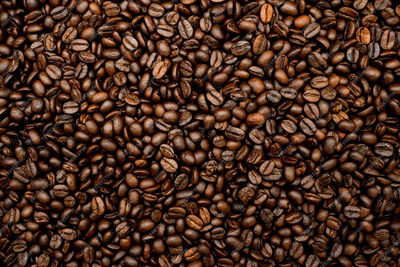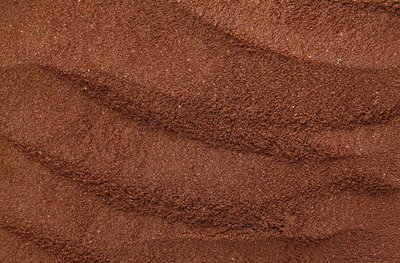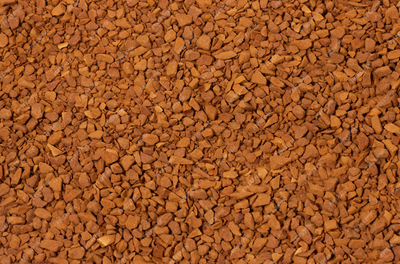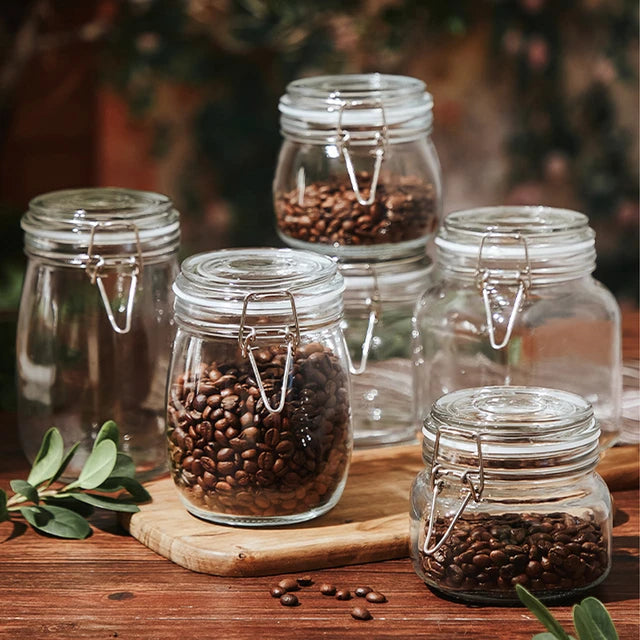Why Proper Storage Matters
Coffee beans are particularly sensitive to their environment. Once roasted, they begin losing their freshness and distinctive flavours due to exposure to air, moisture, light, and heat. Improper storage can lead to stale beans that lose their aromatic oils and might even absorb unwanted Flavours from their surroundings.
When it comes to Presto Coffee, we believe in more than just a great taste; we're dedicated to a sustainable, ethical coffee experience. Our consciously uncomplicated coffee is the result of responsibly sourced beans, carefully roasted right here in the UK using the latest green technology.
Coffee's Shelf Life
How long your coffee stays fresh and tasty can depend on several factors. Understanding these can help you get the most out of every bag of Presto Coffee. Here are the key things that affect the shelf life of your coffee:
- Roasting Date: Coffee is freshest soon after it's roasted. Freshly roasted beans will have a rich, full Flavour that gradually diminishes over time.
- Storage Conditions: Exposure to air, light, heat, and moisture can all speed up the deterioration of coffee beans. Proper storage—in airtight containers and away from direct light and heat—helps preserve their freshness.
- Bean Type and Texture: Whole beans tend to last longer than Ground coffee because they have less surface area exposed to oxygen. Coarser grinds will also retain their Flavour longer than finer grinds due to reduced exposure to air.
By keeping these factors in mind, you can ensure that your Coffee remains as fresh and Flavourful as possible from the first cup to the last.

Top Tips for Coffee Storage
To keep your Presto Coffee tasting its best, proper storage is key. Here are some practical tips to ensure your coffee maintains its peak Flavour and freshness.
- Air-tight Container: Transfer your ground coffee into an air-tight container to minimize exposure to oxygen, which can cause it to go stale.
- Cool, Dark Place: Store your coffee in a cool, dark place away from direct sunlight and heat sources. Avoid storing it in the fridge or freezer, as fluctuating temperatures can affect its flavour.
- Avoid Moisture: Keep your coffee away from moisture and humidity, as they can accelerate the degradation process.
- Use Fresh Beans: If possible, grind your coffee beans just before brewing to preserve their freshness and flavour.
By following these simple storage tips, you can prolong the life of your Presto Coffee and continue to enjoy its great taste.
Preserving Coffee Beans for Ultimate Freshness
Keeping your Presto Coffee beans fresh over time requires some know-how and the right storage solutions. Here are some key guidelines to ensure your coffee beans remain as fresh as the day they were roasted.
Quality Storage Containers
To effectively store your coffee beans, consider these recommended types of containers:
- Glass Jars with Airtight Lids: These prevent air from getting in and are inert, meaning they won't react chemically with your coffee.
- Ceramic Containers with Rubber Seals: These offer excellent protection against light and air. The rubber seal helps lock in freshness.
- Metal Tins with Tight-Fitting Lids: Ideal for blocking out light and air, metal tins are also robust and can protect beans from physical damage.
Freshness Valves
Freshness valves play a crucial role in coffee storage by:- Allowing Gas Out: These one-way valves let carbon dioxide (a natural byproduct of the roasting process) escape without letting air in.
- Preventing Oxidation: By keeping air out, these valves help maintain the coffee's original Flavour and aroma for longer.
- Enhancing Shelf Life: With reduced exposure to oxygen, coffee beans can maintain freshness and taste for extended periods.
Optimal Storage Conditions
Creating the ideal storage environment involves several important factors:
- Consistent Temperature: Store your coffee in a place with a stable, cool temperature. Avoid areas with fluctuating heat, such as near ovens or windows.
- Low Humidity: Ensure the storage area is dry. Excess moisture can degrade the quality of the beans quickly.
- Away from Odours: Coffee beans can absorb Odours easily, so keep them away from spices, cooked foods, or any aromatic substances that might alter their Flavour.
By adhering to these guidelines, you can preserve the freshness and Flavour of your Coffee beans, ensuring a superior coffee experience every time you brew.

Should You Refrigerate Coffee?
Storing coffee in the refrigerator is a common practice, but it may not be the best choice for your beans. Let's address some misconceptions about refrigerating coffee and explore why it might not be ideal.
- Moisture Concerns: The refrigerator environment contains fluctuating levels of moisture which can be harmful to coffee. Moisture can seep into the beans and degrade their quality, leading to stale and Flavourless coffee.
- Temperature Fluctuations: Each time you open and close the fridge door, the temperature inside changes. These fluctuations can cause condensation to form on your coffee, speeding up the degradation process.
- Absorption of Odours: Coffee is highly absorbent and can easily take on Flavours and Odours from other foods stored in the refrigerator. This can alter the pure taste of your coffee, adding unwanted Flavours.
- Longevity Myth: Many believe that refrigeration extends the life of coffee by keeping it cool. However, the adverse effects of moisture and odor absorption can actually reduce the coffee’s quality faster than storing it at room temperature.
- Freezing vs. Refrigeration: Some confuse refrigeration with freezing. While freezing coffee can be effective for long-term storage (if done properly), refrigeration is not recommended due to its negative impact on Flavour and freshness.
By avoiding the refrigerator and opting for a cool, dry, and dark place, you can ensure that your coffee maintains its optimal Flavour and freshness.
Can You Freeze Coffee Beans?
Freezing coffee beans is a topic of debate among coffee enthusiasts. Here we'll explore the pros and cons of freezing coffee beans to help you decide if it's the right method for extending their shelf life.
Pros |
Cons |
|
Extended Shelf Life |
Flavour Degradation |
|
Freezing can significantly extend the shelf life of coffee beans, allowing you to stock up and use them over a longer period. |
If not done properly, freezing can lead to a loss of Flavour complexity and richness, making the coffee taste bland. |
|
Preserves Freshness |
Moisture Risk |
|
When sealed properly in air-tight, moisture-proof containers or bags, freezing can preserve the freshness and Flavour of beans until you're ready to use them. |
Any moisture in the packaging or that condenses during thawing can lead to Mould growth or Flavour dilution. |
|
Convenience |
Time-Consuming Preparation |
|
Having frozen beans on hand means you always have fresh coffee available, especially if you buy in bulk or find a good sale. |
Beans need to be thawed before use, which requires planning ahead. Additionally, frequent freezing and thawing can further degrade quality. |
To maximize the benefits and minimize the drawbacks, ensure your coffee beans are stored in airtight containers and are completely dry before freezing. Consider freezing in small batches to avoid repeated thawing and refreezing, which can degrade the beans' quality over time.

Best Practices for Long-Term Coffee Storage
Storing coffee for the long term without losing its Flavour requires careful planning and the right techniques. Here are some advanced methods to ensure your coffee remains fresh and Flavourful over extended periods.
Vacuum Sealing:
- Reducing Air Exposure: Vacuum sealing removes air from the storage bag, drastically reducing oxidation that can degrade coffee beans.
- Maintaining Freshness: By eliminating air, you also protect the beans from moisture and contaminants, which helps preserve their natural Flavours and aromas.
- Practical for Bulk Coffee: If you purchase coffee in bulk, vacuum sealing and then storing it in a cool, dark place can be an effective way to manage your supplies.
Desiccants:
- Moisture Control: Including desiccants like silica gel packets in your coffee storage can absorb unwanted moisture, preventing the beans from becoming damp and musty.
- Enhanced Preservation: Desiccants help maintain a dry environment within storage containers, which is crucial for preserving the integrity of the coffee over time.
Temperature Control:
- Consistent Cool Conditions: Store your coffee in an environment with a stable, cool temperature, away from direct sunlight and heat sources.
- Avoid Temperature Fluctuations: Fluctuations can cause condensation and accelerate the degradation process, so a stable environment is key.
Opaque, Airtight Containers:
- Light Protection: Light can degrade coffee quickly, so using opaque storage containers prevents light from affecting the beans.
- Seal Freshness: Airtight containers also prevent air from entering and keep the beans in a controlled atmosphere.
Proper Labeling:
- Track Freshness: Label your coffee with roasting dates and storage dates to keep track of its freshness and optimize its use before it starts to degrade.
- Organization: Organized labeling helps you rotate your stock effectively, using older coffee first and keeping the freshest beans for later.
By implementing these advanced storage techniques, you can significantly extend the life of your coffee without compromising its quality, ensuring that every cup is as fresh and delicious as possible.
Conclusion
In conclusion, proper coffee bean storage is essential for maintaining the freshness, Flavour, and quality of your Presto Coffee. By understanding the factors that affect coffee shelf life and following best storage practices, you can ensure a consistently excellent coffee experience from the first cup to the last.
Presto Coffee emphasises sustainability and ethical sourcing, reflecting a commitment to delivering not only great taste but also a conscientious coffee experience. From utilizing quality storage containers like glass jars with airtight lids to implementing advanced techniques such as vacuum sealing and desiccants, Presto Coffee provides comprehensive guidance to help coffee enthusiasts preserve their beans for ultimate freshness.
Frequently Asked Questions
1. How does proper coffee bean storage impact Flavour?
Proper storage prevents exposure to air, light, heat, and moisture, which can degrade the Flavour of coffee beans over time.
2. Can coffee beans be frozen for long-term storage?
Yes, freezing coffee beans in airtight containers can extend their shelf life, but proper preparation and storage are essential to prevent Flavour degradation and moisture risks.
3. What are the best practices for long-term coffee storage?
Vacuum sealing to reduce air exposure, using desiccants for moisture control, maintaining consistent cool temperatures, storing in opaque, airtight containers, and proper labeling for tracking freshness are recommended techniques.
4. Why is it important to store coffee away from moisture and humidity?
Moisture and humidity can accelerate the degradation process of coffee beans, leading to a loss of Flavour and aroma. Exposure to moisture can cause the beans to become damp, leading to Mould growth and an unpleasant taste. Storing coffee in a dry environment is crucial for preserving its quality over time.
5. How Long Does Coffee Last?
The shelf life of coffee depends on various factors such as roast level, storage conditions, and packaging. Generally, whole bean coffee can maintain their freshness for a longer period compared to ground coffee. When stored properly in an airtight container in a cool, dark place, ground coffee can last for about 1 to 2 weeks, while whole beans can last up to a month or longer. For the freshest taste, opt for freshly ground coffee just before brewing






 Log in
Log in